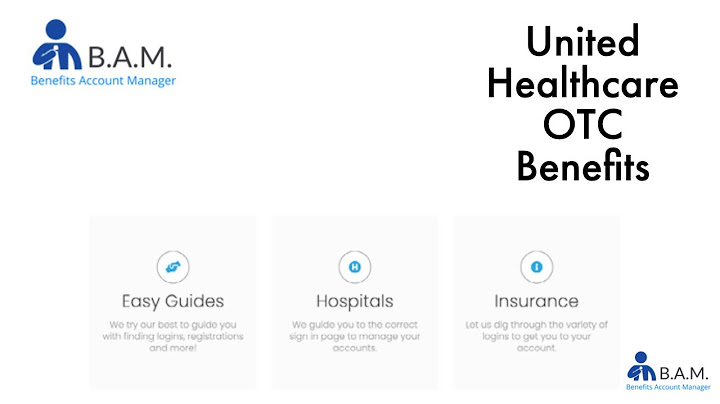Prepare to meet growing demand for licensed counselors and make a difference in your community with a master’s in clinical mental health counseling. Counseling professionals help people cope with personal challenges and lead happier, more resilient lives. As more Americans recognize the benefits of counseling to improve their mental health, strengthen their relationships and remove the barriers to achieving their goals, this field will only continue to flourish. Show
What Can You Do with a Master’s in Clinical Mental Health Counseling?With a master’s degree in clinical mental health counseling, you can make a positive impact as a counselor in a number of settings, including:
Clinical counseling is a branch of psychology concerned with treating people for mental health as well as emotional and relationship issues. A master’s in clinical mental health counseling program covers the skills needed to assess patients, diagnose mental disorders—like anxiety and depression—and deliver effective treatment. You’ll learn both the theory and practice of working closely with patients in individual, group, and family settings. You’ll also explore counseling strategies for diverse populations—from children to the elderly. Many counseling roles require a master’s degree. This is especially true if you intend to provide certain kinds of services, like one-on-one counseling sessions. In addition, all states require mental health counselors to earn a license. Check with your state to learn more about education requirements for licensure. An educational background in mental health counseling could also prepare you for a variety of other career paths in the human services field. These may include:
Back to Top How to Get a Mental Health Counseling Degree OnlineOnline learning offers a flexible way to pursue your graduate degree in clinical mental health counseling on your own schedule. Here’s how to get started:
Back to Top Is a Master’s in Clinical Mental Health Counseling Worth It?For many students, earning a master’s in clinical mental health counseling is an investment in a rewarding career helping others live their best lives. Consider the following reasons to earn your master’s in this growing field:
Back to Top Curriculum and Degree RequirementsThe online Master of Arts in Clinical Mental Health Counseling at University of the Cumberlands is designed to prepare students for leadership and service as licensed counselors. As with all of UC’s graduate counseling programs, this program features 48 credit hours of core coursework in counseling, including psychological assessment in clinical practice, human growth and development, and counseling during grief and crisis. Our curriculum includes a 100-hour practicum and two 300-hour counseling internships, so you’ll have the opportunity to apply your skills in a real-world context. The program also requires 12 additional credit hours of specialized courses in clinical mental health counseling: • Private Practice and Clinical Supervision As an institution grounded in Christian principles and leadership through service, University of the Cumberlands seeks to foster empathy, personal responsibility and a drive to change the world. After earning your graduate degree in clinical mental health counseling, you will be able to demonstrate sound ethical values and compassion for humanity. And, you’ll be ready to pursue licensure and start making a difference as a counselor-leader. Click here for Course Details Department of Counseling Sample Syllabi Back to Top Program Goals and ObjectivesMaster’s Program Goal 1: Facilitate professional counselor identity development aligned with the ACA Code of Ethics.
Goal 2: Prepare culturally competent counselors to serve diverse populations.
Goal 3: Develop an understanding of developmental theory and persons in context across the lifespan
Goal 4: Prepare students to effectively apply career development theory, acknowledging related life-work roles and factors.
Goal 5: Prepare counselors who demonstrate effective counseling skills and techniques.
Goal 6: Prepare counselors who demonstrate effective group counseling skills and techniques.
Goal 7: Develop counselors who are effective with assessment, diagnosis, and intervention planning.
Goal 8: Prepare counselors to effectively utilize research in clinical practice and program evaluation.
Goal 9: Promote the attitudes and dispositions that facilitate academic success and effective counseling.
Goal 10: Equip students with the foundational knowledge and skills that prepare them to seek licensure as a professional counselor.
Back to Top TuitionCosts for programs of study at University of the Cumberlands are competitive and affordable. Click here to view tuition rates and fees. Back to Top Admission RequirementsClick here to view admission requirements, admission cycles, and application deadlines. Back to Top CACREP AssessmentThe CACREP Council accredits the Clinical Mental Health Counseling program, Addiction Counseling program, PhD in Counselor Education & Supervision, and the related Doctorate of Educational Leadership Online (EdD) Program. CACREP is a specialized accrediting body recognized by the Council for Higher Education Accreditation (CHEA) that accredits counselor-preparation graduate degree programs. For more information, visit https://www.cacrep.org. CACREP Outcomes for the Department of Counseling at University of Cumberlands: Vital Statistics: 2017, 2018, 2019, 2020 Program Evaluation Outcomes Report: 2015-2018, 2021 Back to Top AccreditationClick here to view University of the Cumberlands' accreditation information. Back to Top FacultyClick here to view a list of the clinical mental health faculty. Back to Top What is the best degree for mental health counseling?Psychology and Counselling are easily among the best degrees to study for a career in mental health. You could become a psychologist or counsellor, working in a range of different settings. In fact, these skills are valuable in many fields, from business to sports coaching.
Is Snhu a Cacrep?SNHU's MA in Clinical Mental Health Counseling program is accredited by the Council for Accreditation of Counseling and Related Educational Programs (CACREP) through 2028.
Is University of the Cumberlands Cacrep accredited?CACREP accredits programs that meet national standards of quality and relevance to the counseling profession. University of the Cumberlands is one of the only higher education institutions to offer CACREP-accredited programs online. Pursue your studies.
Is Umass Boston Cacrep accredited?Our vocational track is fully accredited as a Rehabilitation Counseling program by the Council for Accreditation of Counseling & Related Education Programs (CACREP).
|

Related Posts
Advertising
LATEST NEWS
Advertising
Populer
Advertising
About

Copyright © 2024 hanghieugiatot Inc.


















